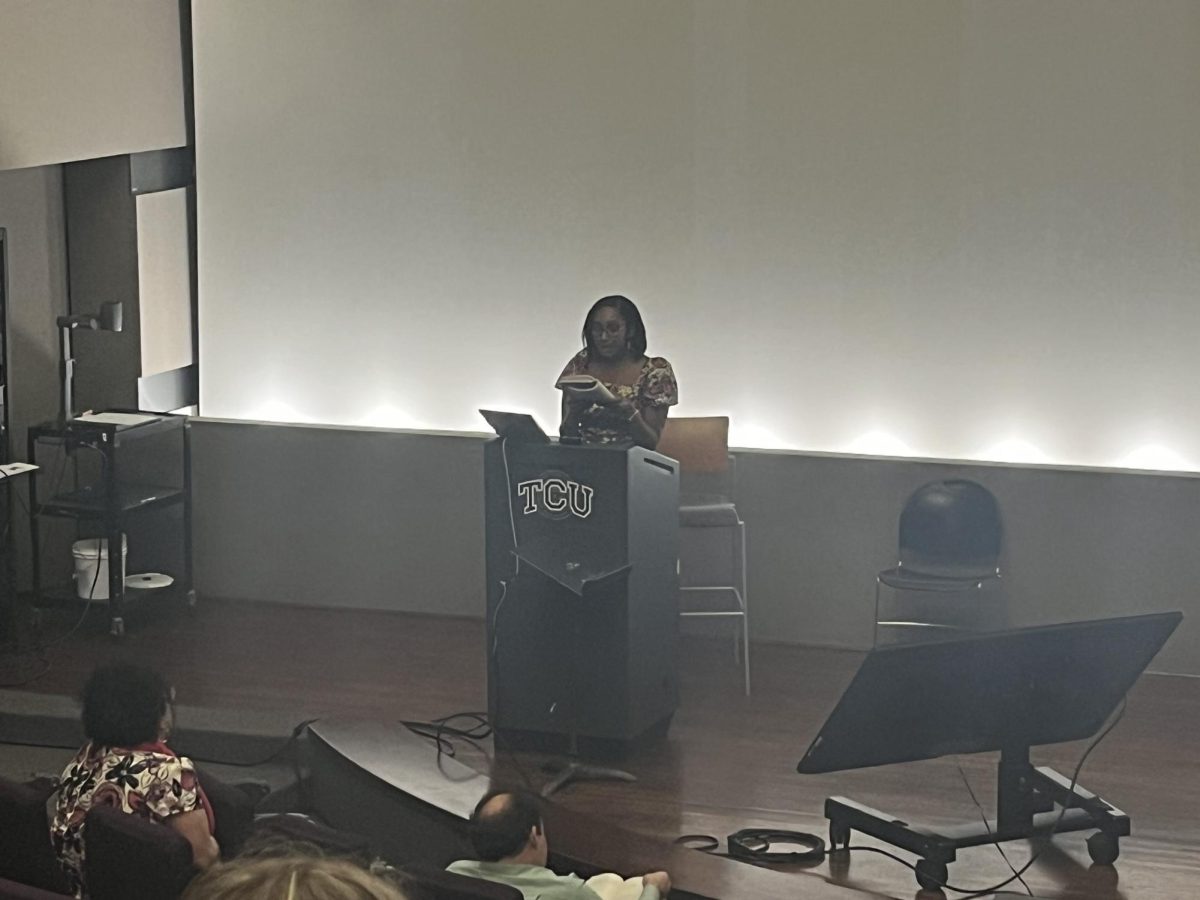Though some might call it tough, the MBA program in the School of Business is a far cry from where Capt. Marc Ortiz was last year.That’s when Ortiz – a 1999 graduate of the United States Military Academy and a captain in the 1st Squadron, 7th (US) Cavalry Regiment – was in Iraq.
Ortiz decided to go back to school after getting back from Iraq on March 15.
“I went back to school to get some experience in the business world since all of my work experience has been in the Army,” Ortiz said.
Currently, Ortiz is serving in the reserves while he is a full-time MBA student. He helps to train the Army ROTC cadets at TCU.
He’s “dedicated,” said Maj. John Agor, a professor of military science.
“When he talks, the cadets listen,” Agor said.
Ortiz said he decided to attend graduate school in April. After looking into his options, he decided TCU was the best place. With graduate assistance and a scholarship, Ortiz’s tuition is almost completely covered.
After graduating from West Point, he was assigned to Fort Hood in January 2000.
During his six years in the Army, Ortiz spent two years in Doha, Qatar, and Baghdad, Iraq.
Ortiz’s first deployment was with a special operations unit. His second was with the 1st Cavalry Division out of Fort Hood.
Although Ortiz was a squadron communications officer, Capt. Jason Dudley said, “Marc volunteered to go out on combat patrols despite the fact that his duties and responsibilities as a signal officer kept him inside the camp and relatively out of harm’s way.”
Capt. Ted Stokes, squadron training officer, said that Ortiz assumed a self-assigned role as battle captain during the Iraqi elections and put himself in harm’s way.
“Daily, he performed his duties above and beyond,” Stokes said.
Both Stokes and Dudley spoke of situations in which Ortiz put his own life at risk to help others. They each described him as having a good sense of humor, but they also said Ortiz knows when he needs to be serious.
Though Joshua Lough was worried about his good friend Ortiz, Lough said he knew that Ortiz’s training “put him in a good position to survive.”
Lough went to high school with Ortiz and described him as “dynamic” and “loyal.”
“I have always admired him for his discipline and the accomplishments he has achieved because of that quality,” Lough said, “When it comes to the war, I’d say that I’m even prouder of him.”
Ortiz said that though there are many different views of the war, he believes in the mission.
“Our mission is to help people,” Ortiz said.
Ortiz described the people in the Al Soweib area of Baghdad when he first arrived as untrusting, but after his unit built new roads, a sewer system and a town hall, the people were waving and smiling at Ortiz’s unit.
The American media coverage of the war is “sanitized,” Ortiz said.
“Other countries probably have a better idea (of the war) than American citizens,” Ortiz said, because many other countries show images that the American media would not show.
Ortiz said much of the war coverage was slanted because many of the good events were not fully covered or covered at all.
“American media wants to tell the bad side,” Ortiz said. He said the election day in Iraq on Jan. 30 was not fully covered.
Ortiz said that, despite a call to withdraw from Iraq by many Americans, at least three more years of rotation of soldiers are needed. He said that the biggest goal is to train the security forces in Iraq so the United States can withdraw.
“They’re getting on-the-job training,” Ortiz said of the Iraqi security forces.




